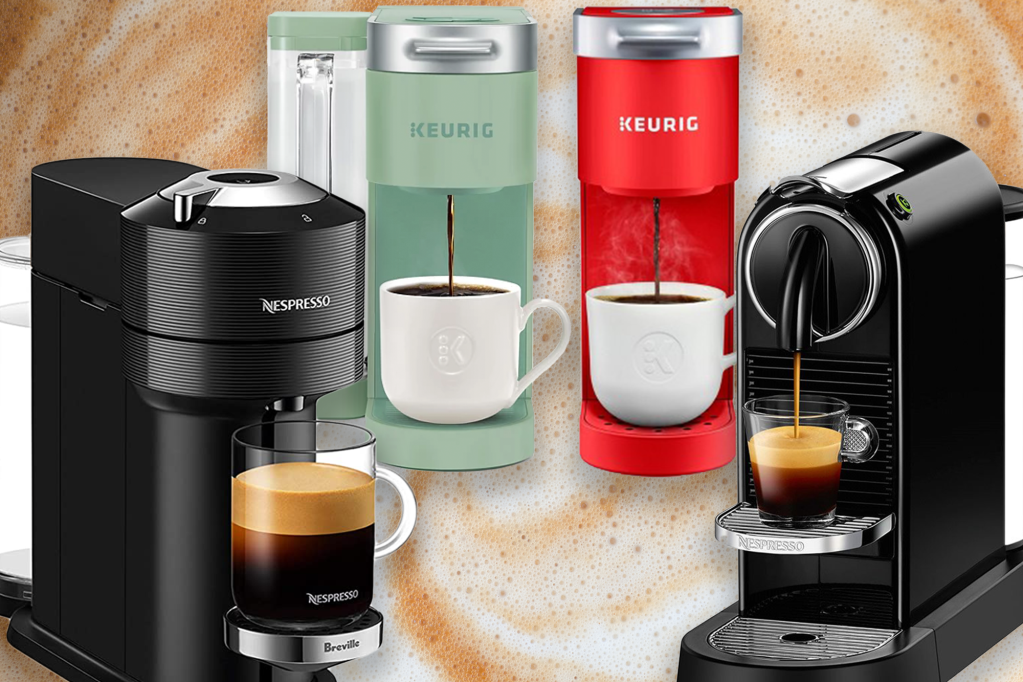After reading the Washington Post‘s deep-dive into the environmental impact of using coffee pods, I’m curious about other questions. The article compares coffee pods to the traditional automatic drip coffee machine, and also to making instant coffee, and finds that pods are generally less harmful despite the packaging issue. The main reason is that pod users waste less coffee, and coffee production has more carbon dioxide impact than any other factor. The secondary reason is household energy consumption, and here the main advantage is that pod users don’t have leave a kettle on to keep the coffee warm. There are some other factors that can have an impact, like whether you home uses fossil fuels or renewable energy to produce electricity, whether or not you recycle the pods, and how much coffee you make but don’t drink. Adding milk has a negative environmental impact, but that’s true no matter the brewing method.
In our house, we don’t use the automatic drip machine and we don’t make instant coffee. My wife prefers the pod method, and she froths some milk to go with it and then recycles the cartridges. I sometimes use this method (without the frothing) when I’m feeling lazy, but I generally grind my beans and use a French press. My method isn’t discussed at all in the Washington Post article.
Now, it’s true that I use some electricity grinding the beans, but the beans get ground at some point in the process no matter what method is used. Unfortunately, we don’t have renewable energy so that’s a possible factor. Now, I use a kettle to heat the water but I don’t keep the coffee heated after I make it. Instead, I will microwave it to heat up subsequent cups. This probably turns my method into an environmental disaster, but I don’t really know how it compares to having an automatic machine turned on for hours. As for wasting coffee, that’s pretty infrequent. When I used an automatic machine, evaporation would sometimes make the coffee too concentrated and bitter, but with the French press, on the rare occasions when I don’t consume everything I make on the first day, it’s still drinkable the next morning. Perhaps I sometimes make my coffee stronger than I need to, which may compare unfavorably with the pod method.
An advantage of both my wife’s and my method is that we don’t need any coffee filters, which I imagine have a big environmental impact.
These questions are only modestly interesting if we limit the discussion to coffee, but the exercise is useful anyway if you begin to consider all the different ways you use electricity in the house, and whether you’re making the best financial, practical, and environmental decisions. I don’t recommend obsessing over these issues lest to strip all the joy out of life, but they’re worth considering in case you can make an easy change in your habits that can make your life better and help save energy.
